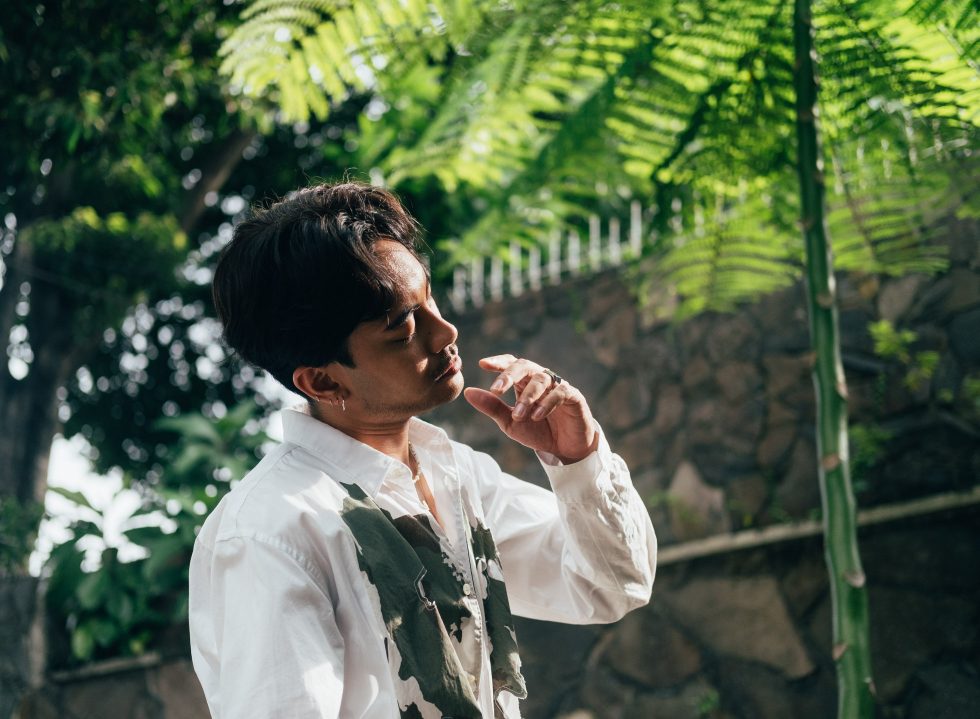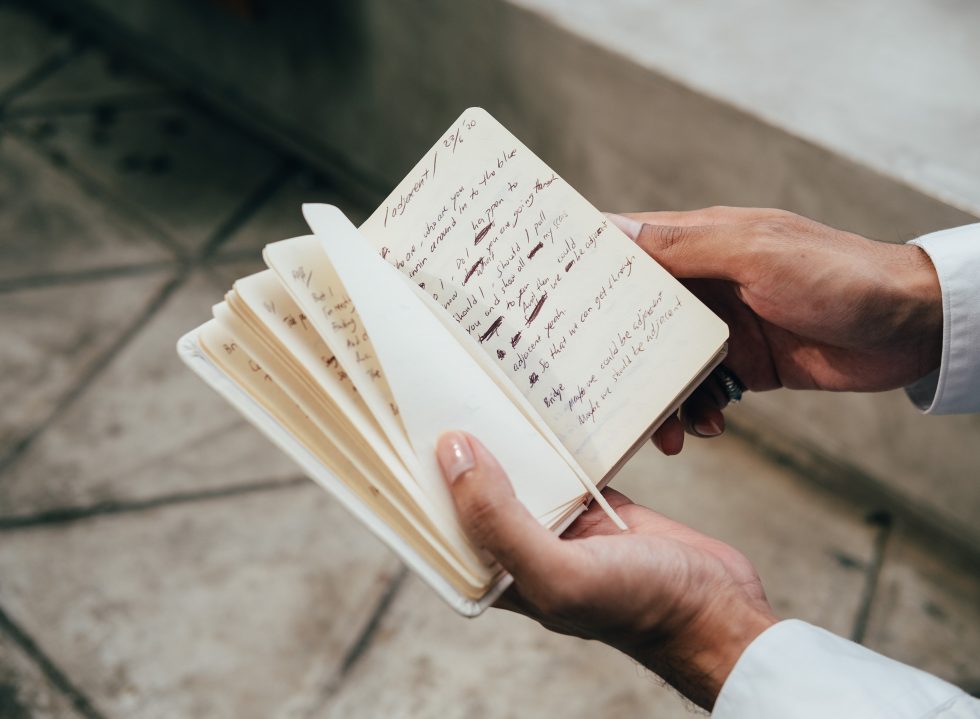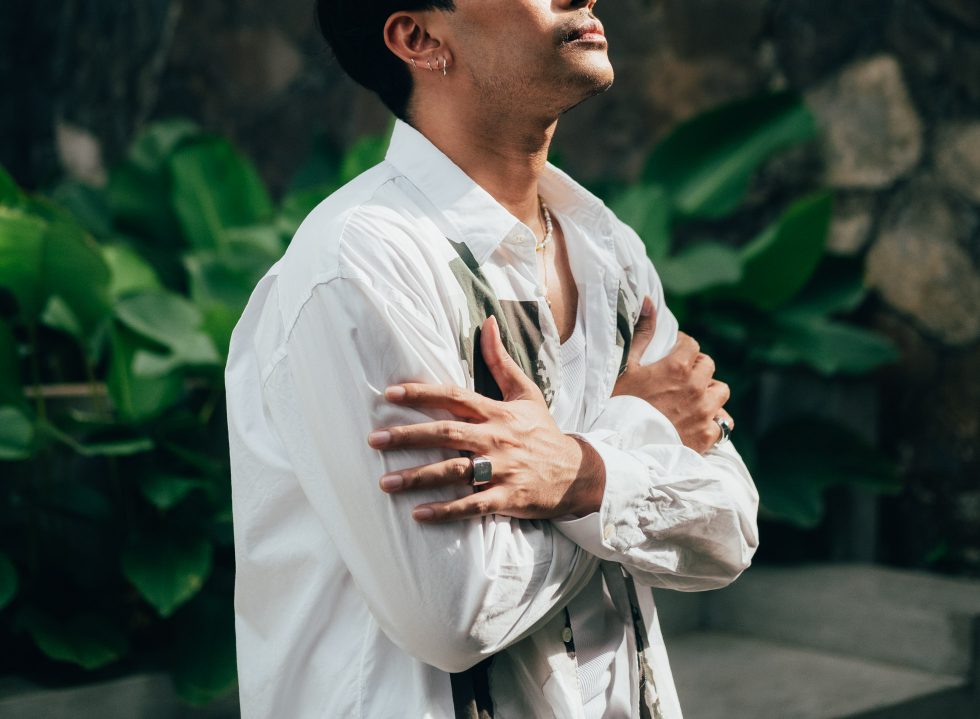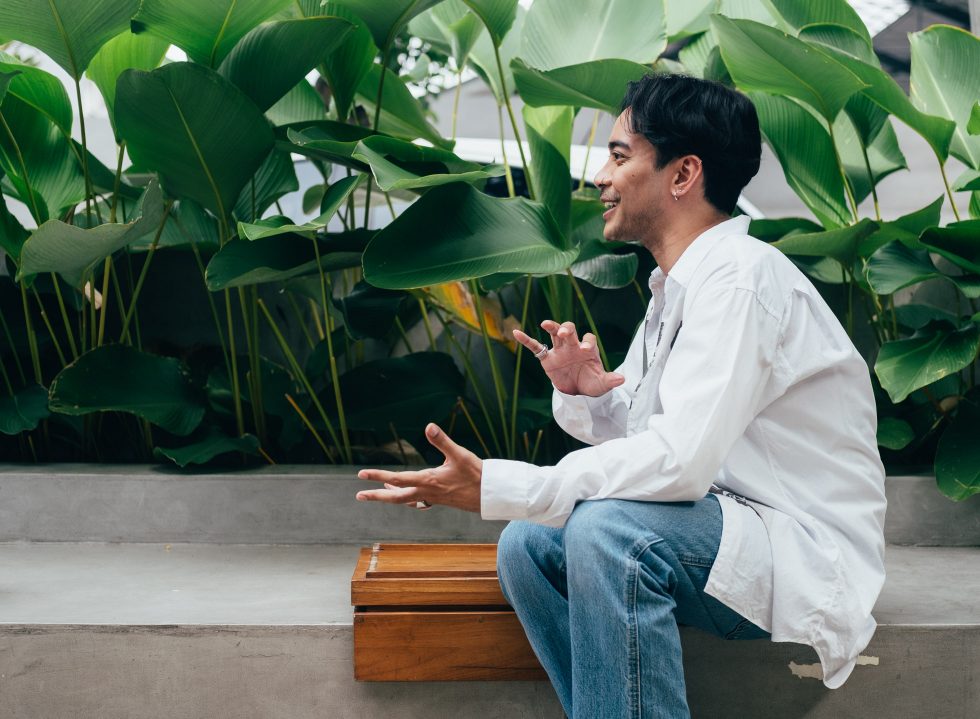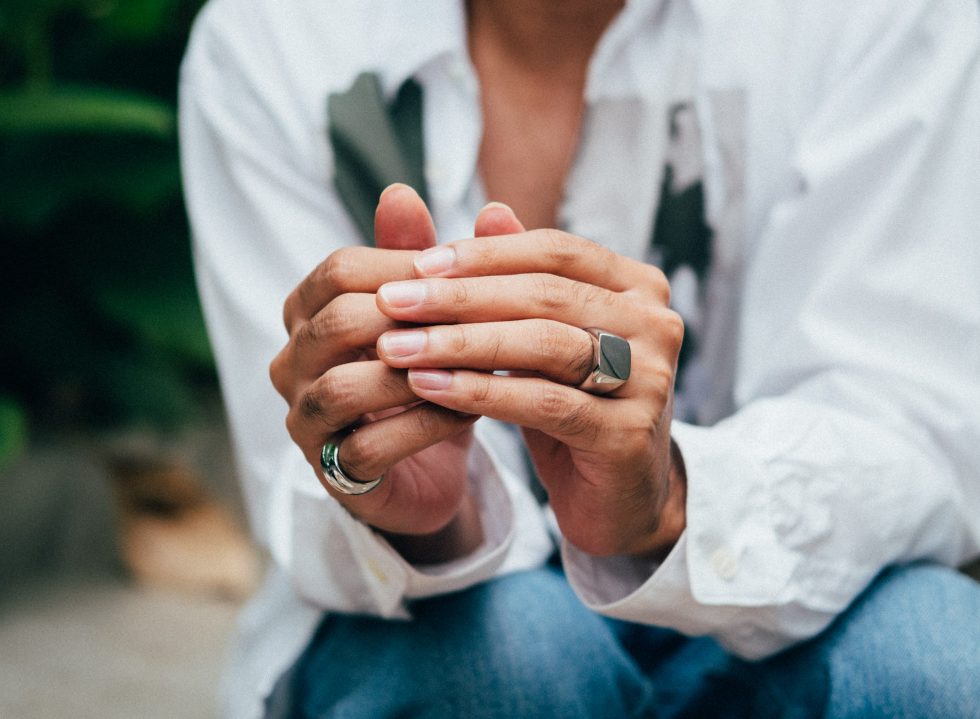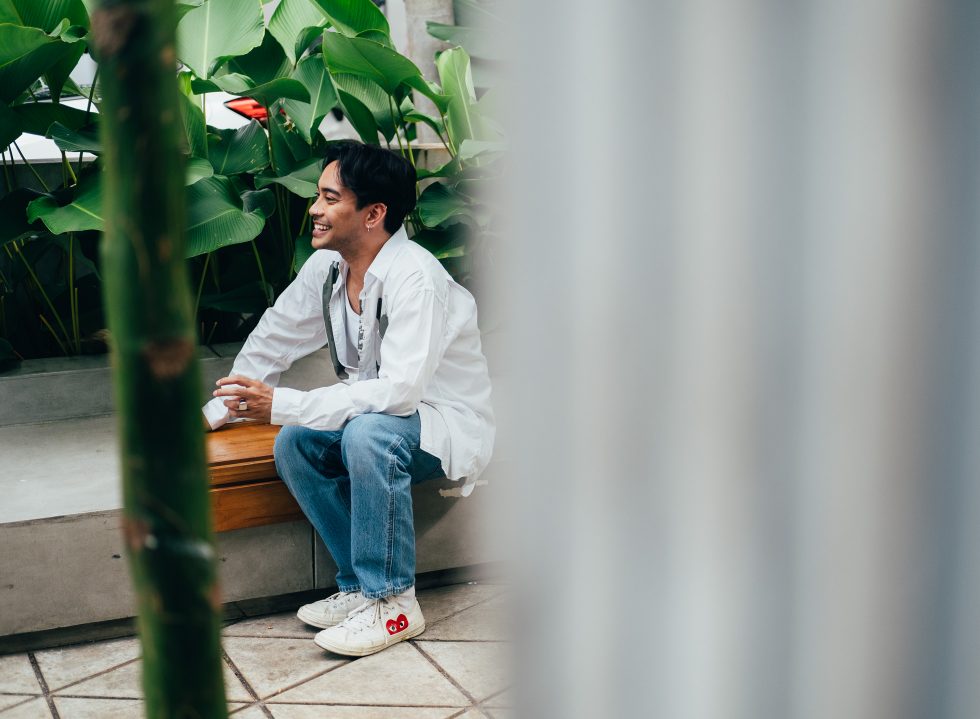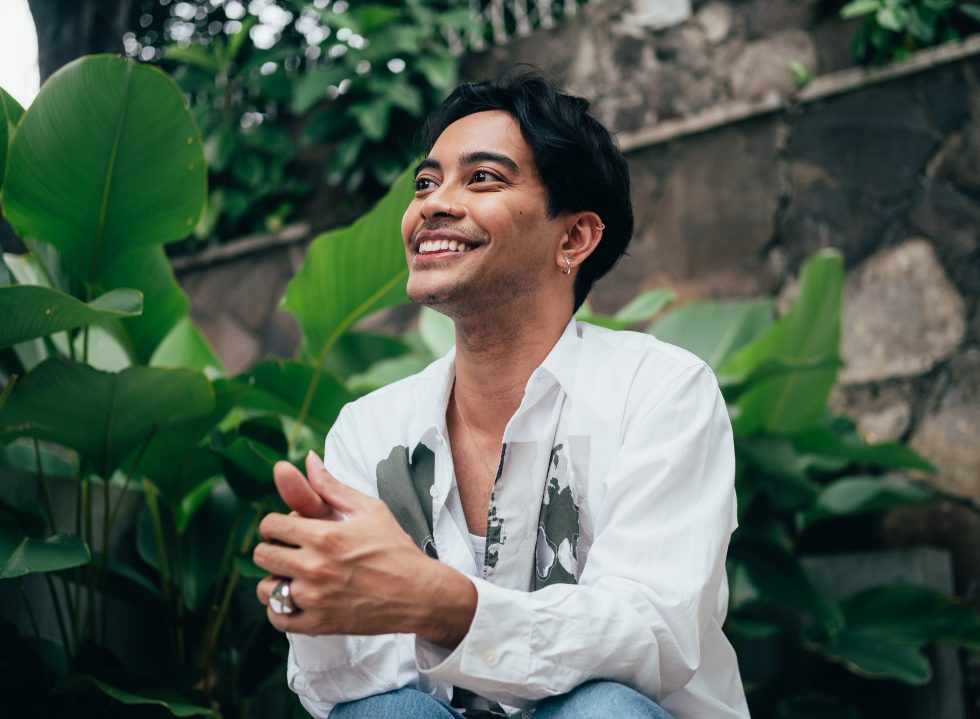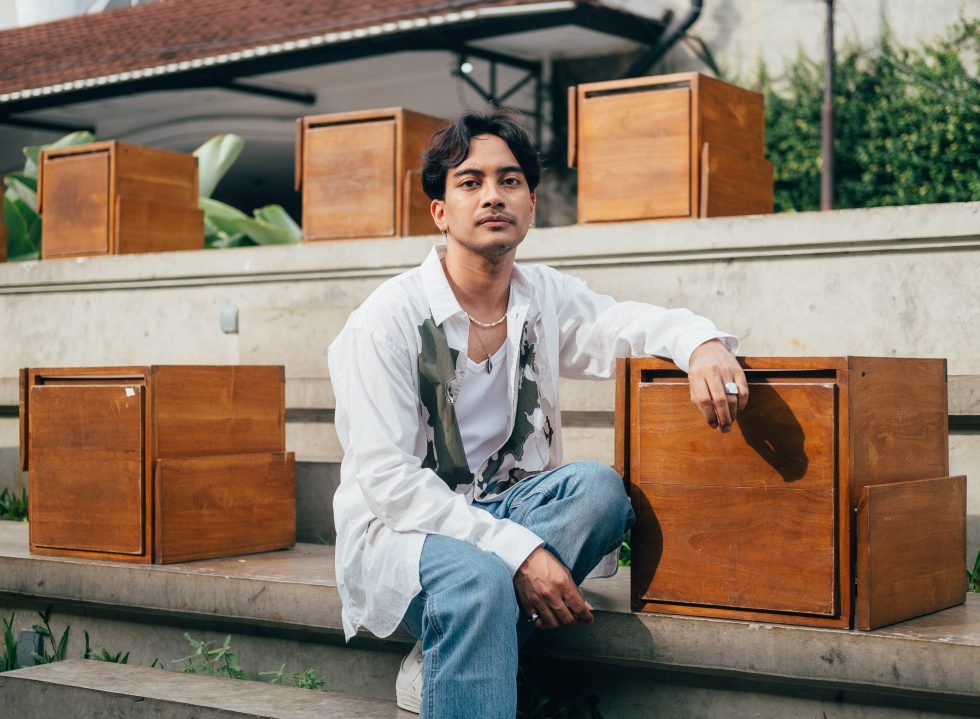After 10 years of performing under the pop musical group GAC (short for the members Gamaliél, Audrey, Cantika), Gamaliél leans in a different direction with a refreshingly new sound for his solo E.P., ‘Q1’ (Quarter One). Introspective and honest, the debut mini-album is a poetic reflection of Gamaliél’s past musings, enveloped into reimagined sounds of pop and classical with bravely vulnerable lyrics to match.
In this interview, the singer-songwriter revisits his younger self, “ie”, and opens up about his inspirations behind ‘Q1’, making peace with oneself, and what it means to embrace failures. This meditative quality is integral to the E.P., through which he reminds us that this is only the beginning of his solo journey.
Can you tell us a little bit about the inspiration behind this E.P.? What sound were you hoping to achieve initially?
I had so many ideas in the beginning, there was so much I wanted to try. But the starting point was when I asked myself the question, ‘What do I really want? What makes me happy?’ and realised that I didn’t know the answer.
Then, I came across a picture of myself when I was younger. My nickname was “Liél”, but it was shortened to “ié” because I couldn’t pronounce the “L” sound back then. I asked myself, if given the chance, what kind of album would “ié” want to create?
I had to confront a lot of emotions that young “ié” felt, like disappointment and anger. It dawned on me that I have subconsciously spent most of my life doing what others expected of me. At that point, I wasn’t sure where to draw the line between the expectations of others and what I really wanted to do; that was the time I decided that I wanted to dedicate this E.P. as a gift to little “ié.”
When I lost my father last year, the E.P. was still one song short. I had previously worked on a song but couldn’t seem to find the right inspiration for the lyrics. After he passed away, I revisited the song and finished it as an ode to him. This was how ‘Ethereal’ came to be. ‘Q1’ is very close to my heart, and it seemed only right to complete it with a song for him.
What were you trying to communicate to your younger self?
I wanted this E.P. to be a space where failure can be celebrated. If you listen closely, there’s a consistent sound of violin strings that travels from one song to the next. When I was younger, I loved the sound of violin strings. I took lessons.. but violin is a very hard instrument to learn, so when my teacher and siblings told me ‘you can’t do it’, I was regrettably quick to believe them. I saw this as my first failure in life.
But you know, mistakes and failure go hand in hand with life. But they don’t need to define us. Instead, they should be celebrated. This is something I hope people will take away from this E.P.
It’s all part of the process, and I wouldn’t be where I am without them.
It’s true! So often we’re too quick to allow others to dictate what we can and can’t do.
Yes! When in reality they don’t know or understand our process, yet they seem very fixated to determine our results.
‘Forever More’ was the first track you recorded. How did that come about?
I started compiling songs I would listen to when I was younger. It was an eclectic mix: R&B, classical, instrumentals, you name it. I felt a sense of joy listening back to these tracks. I then shared this playlist with my producer Aldi Nada Permana along with my idea to gift this E.P. to my younger self and asked for his help to piece it all together.
If you listen carefully, you’ll discover that the 6 minutes of ‘Forever More’ is divided into two parts. It starts with the disappointment and anger of young “ie” and closes with hope and acceptance.
To me, the song reflects the reconciliation and peace that “ie” was finally able to share with the now-mature Gamaliel. There were worries that I had about the length especially, but I was resolute that if “ié” is happy with it, then I’m on the right track.
What was the hardest part about making music this personal?
The beginning was quite tough. But once I was set on creating work for my younger self, the rest just fell into place. It was such an exciting time of experimentation. When we started, I couldn’t quite imagine what the melodies would sound like because a lot of the musical references were instrumental.
But when we started to take things out of their boxes and piece them together, I found freedom to really focus on the process of creating and not just the end result. It was surprising and unexpected in the best way, and it led me to discover my own sound.
Speaking of your own sound, you worked with producer Aldi Nada Permana, Kenan Loui, and Gerald Situmorang. How did they help shape and realise your vision for this EP?
When we first started working on ‘Adjacent’, everything was virtual. I had a songwriting workshop with Kenan Loui. It was a lot of fun and surprisingly quick, we finished the lyrics in a day.
Beat has certainly been a definitive element in my music, but I wanted to explore further and mesh pop and classical together.
I was quite specific in wanting the song to have an interlude in the middle, something rich, like Vivaldi. Producer Aldi Nada Permana then helped develop the arrangement of strings – it was all very organic and explorative. I knew I wanted to work with these people from the get-go. Also, Gerald Situmorang, or ‘Getis’ helped me co-write ‘Unfindable’.
And what was that like, writing ‘Unfindable’?
‘Unfindable’ is rooted in the idea that sometimes things are found in the unlikeliest of places. Let’s take success as an example. I think the world has a definition of success that is so restrictive. I believe it’s actually when we’re at our lowest, that we have the opportunity to see things clearer, ‘Oh, this is another form of success’, outside the small boxes we limit them to.
Our generation sees success through numbers: streams, views, likes. But to me, it is something else altogether. Success is creating something you’re genuinely proud of regardless of how it’s received. To make peace with myself and be where I am now, that’s success to me.
What’s something new you’ve tried for this EP that you never thought you would?
Definitely creating the songs online! We only met in person when we had to do the final recording. This was such a new experience for me, and it helped me break down the barriers and preconceptions of what sounds ‘made sense’ together. I realised this way of thinking is so limiting! And only once you break free from this will you be able to create work that is exciting and surprising.
Is there anything you fear for your art?
To be honest, I wouldn’t say there’s anything I fear, but worries are definitely there. With change, there’s always bound to be discomfort, but change is inevitable and so is failure.
However, we do have a choice to learn from it and enjoy the ride. As sung in ‘Lagu Hari ini’ by GAC, ‘Entah apa yang kan kuhadapi, semua kunikmati’ (I don’t know what I’m going to face, but I’ll enjoy it all).
All the songs are titled between two slash signs (/). Why is that?
I don’t know why, but I’ve always loved the aesthetic of the [slash] sign in writings. And in a way, it fits the songs perfectly; it represents a closed room where the thoughts and emotions of Gamaliel reside. But through this E.P., I’m taking them out to share them with the world.
Which musicians do you most resonate with, that has helped you explore and vocalise your own stories?
There’s so many! Especially local musicians. When I look around the music industry here, it’s so refreshing to me that there’s so many different musical personalities and colours. There’s Tulus, Yura, Kunto Aji, and then Nadin, Hindia, Pamungkas. All of them have their own sound, and they’re not afraid to show it.
Here, everyone is just trying to create their most genuine work, and we all support one another to excel at what we do best.
As your solo debut project, what was it like to work on ‘Q1’ on your own, compared to your past experiences with GAC?
It definitely took some getting used to, as I wasn’t used to making decisions on my own. It’s different when you no longer have people to chew over things with, but I definitely learned a lot.
How do you feel like your sound has evolved as a musician over the past 10 years?
I am truly grateful for how my musical career took off. It goes all the way back to singing covers on YouTube with Audrey at a time when the term ‘youtuber’ didn’t even exist, you know. From acoustic covers, our sound matured with the pop beats of GAC, where our music also evolved with each album.
And now it’s shifting again, I’m learning something new and exploring another sound. It’s really exciting, from song-writing to recording, each step has its own stories and uniqueness. I’d like to think that my music is constantly evolving, in an explorative and dynamic way. And I’d like to continue exploring this further. Life is too short to just stick to one thing!
A lot of your listeners have been following you since the beginning of your career. What has it been like to connect with them through online platforms this year?
We now have platforms that allow us to communicate and even ‘curhat’ more frequently and that’s exciting! My listeners are like my friends, and thanks to social media, our interactions are no longer limited to in-person meetings or concerts.
Any new hobbies you’ve picked up during the pandemic?
In the beginning, I tried my hand at cooking. For someone who never cooks, I would spend a lot of time watching youtube videos and browsing through new recipes, it was a great way to spend time with my family. It didn’t last very long though (laughs). I don’t think cooking is for me.
Moving forward, what’s one thing you want to take with you and let go of from this year?
I definitely want to continue learning, and not be so quick to feel satisfied. I want to push myself out of my comfort zone to the point where I can say fear and worry is comfortable to me.
What do I want to leave behind? Definitely this pandemic.
